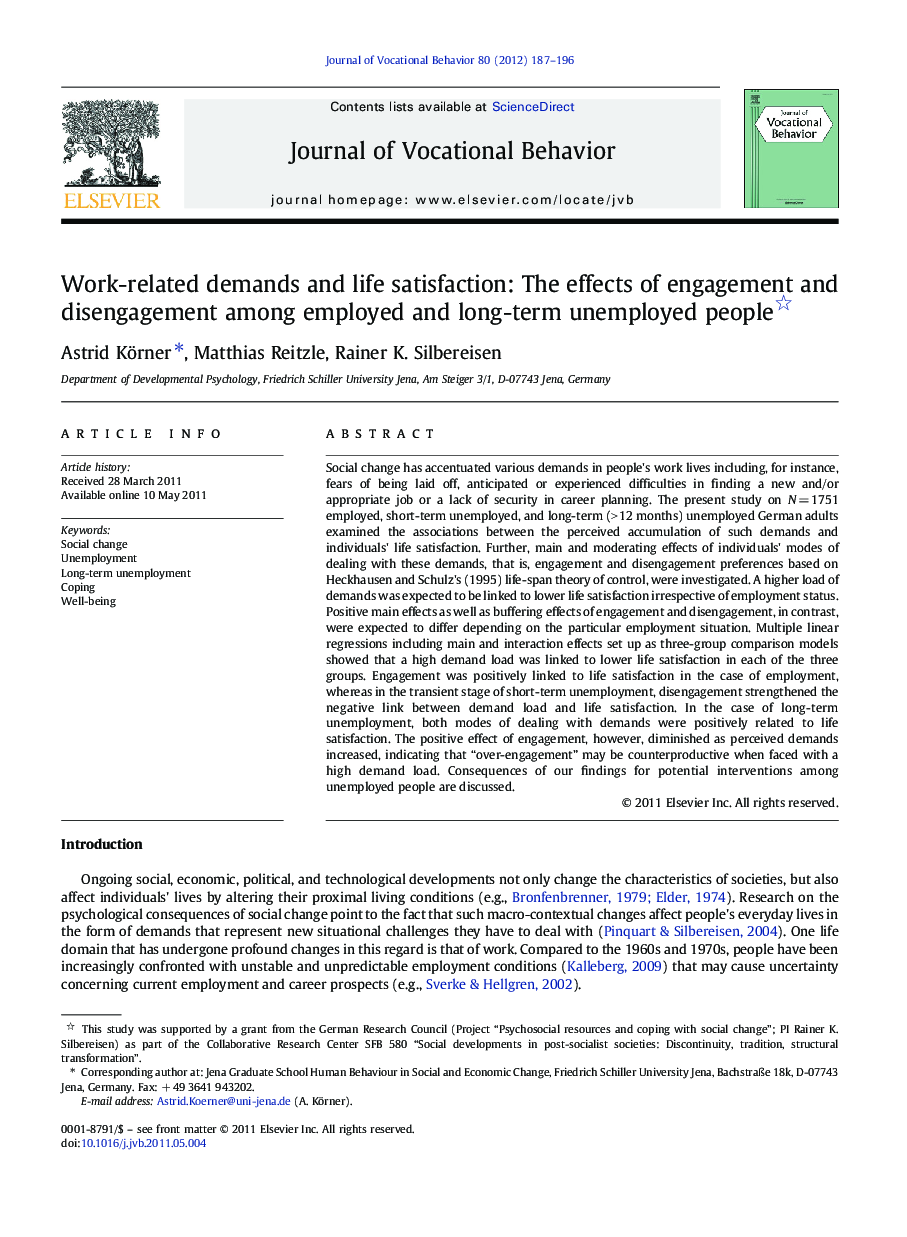| Article ID | Journal | Published Year | Pages | File Type |
|---|---|---|---|---|
| 887116 | Journal of Vocational Behavior | 2012 | 10 Pages |
Social change has accentuated various demands in people's work lives including, for instance, fears of being laid off, anticipated or experienced difficulties in finding a new and/or appropriate job or a lack of security in career planning. The present study on N = 1751 employed, short-term unemployed, and long-term (> 12 months) unemployed German adults examined the associations between the perceived accumulation of such demands and individuals' life satisfaction. Further, main and moderating effects of individuals' modes of dealing with these demands, that is, engagement and disengagement preferences based on Heckhausen and Schulz's (1995) life-span theory of control, were investigated. A higher load of demands was expected to be linked to lower life satisfaction irrespective of employment status. Positive main effects as well as buffering effects of engagement and disengagement, in contrast, were expected to differ depending on the particular employment situation. Multiple linear regressions including main and interaction effects set up as three-group comparison models showed that a high demand load was linked to lower life satisfaction in each of the three groups. Engagement was positively linked to life satisfaction in the case of employment, whereas in the transient stage of short-term unemployment, disengagement strengthened the negative link between demand load and life satisfaction. In the case of long-term unemployment, both modes of dealing with demands were positively related to life satisfaction. The positive effect of engagement, however, diminished as perceived demands increased, indicating that “over-engagement” may be counterproductive when faced with a high demand load. Consequences of our findings for potential interventions among unemployed people are discussed.
► Associations of work-related demands due to social change, modes of dealing with demands and life satisfaction were tested. ► A higher load of demands was related to lower life satisfaction irrespective of employment status. ► Main and moderating effects of engagement and disengagement differed depending on the particular employment situation. ► For employed only engagement, for long-term unemployed disengagement and engagement related to higher life satisfaction. ► In case of short-term unemployment disengagement strengthened the negative link between demand load and life satisfaction.
